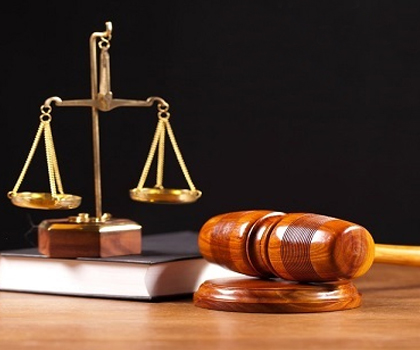Introduction: Access to Justice Begins with Access to Legal Aid
For millions of people in India, navigating legal issues can feel overwhelming—especially when professional legal help is financially out of reach. From property disputes to domestic violence cases, justice often depends not just on laws but on access to those who understand and can apply them.
This is where free legal aid becomes crucial.
In this article, we explore some of the top legal aid platforms in India offering no-cost legal guidance, with a special focus on CSR-driven initiatives like LegitQuest’s Free Legal Aid program— designed to make legal support more accessible and inclusive than ever before.
Why Free Legal Aid Matters More Than Ever
India’s legal system is robust, but its complexity—and cost—can be a barrier for marginalized individuals. Free legal aid bridges this justice gap by ensuring that no one is denied their legal rights simply because they cannot afford representation.
According to the National Legal Services Authority (NALSA), legal aid is a statutory right for eligible individuals under the Legal Services Authorities Act, 1987. However, due to limited awareness and outreach, many potential beneficiaries still go underserved.
That’s where modern legal tech platforms and CSR-led programs step in—offering streamlined, tech-enabled, and human-centric support systems.
Who Can Apply for Free Legal Aid in India?
Eligibility for free legal aid varies by platform, but most include the following groups:
- Individuals from low-income or economically weaker backgrounds
- Women, senior citizens, and marginalized communities
- NGOs representing vulnerable populations
- Students and workers without formal legal access
- Victims of domestic violence, trafficking, or discrimination
Each legal aid provider may define its criteria slightly differently, but the mission is consistent: provide help where it’s needed most.
Top Legal Aid Platforms in India
Here are some of the most reliable platforms offering free legal aid across India:
1. LegitQuest’s Free Legal Aid Initiative
Website: legitquest.com
Founded by legal entrepreneur Karan Kalia, LegitQuest is a legal-tech platform committed to reforming how people access legal research and due diligence. Inspired by the legacy of the late Ram Jethmalani, LegitQuest has embedded public interest and access to justice into its core values.
As part of its CSR initiative, LegitQuest’s Free Legal Aid Program provides:
- One-on-one legal consultations
- Assistance with basic legal documents (affidavits, notices, applications)
- Guidance on legal rights and next steps
- Referrals to verified pro bono lawyers or NGOs
Priority is given to urgent or vulnerable cases, and the number of applications is capped monthly to ensure high-quality support.
2. Legal Services Clinics in Law Colleges
Many government-approved law colleges in India run legal aid clinics as part of their academic mandate. These clinics provide guidance under supervision of faculty and practicing lawyers.
Best For: Students, local community members, small-scale civil matters.
Availability: Depends on the institution and region.
3. iProbono India
Website: iprobono.in
iProbono connects individuals and NGOs with pro bono lawyers for complex legal matters. It focuses heavily on child protection, human rights, and access to justice for the marginalized.
Services Offered:
- Pro bono legal representation
- Legal research support for NGOs
- Policy and impact litigation
4. India Justice Report’s Legal Aid Directory
Website: indiajusticereport.org
This resource is ideal for NGOs and researchers. While not a provider itself, it compiles data and resources on legal aid accessibility, infrastructure, and funding across states.
5. National Legal Services Authority (NALSA)
Website: nalsa.gov.in
NALSA is the apex body created under the Legal Services Authorities Act to oversee and monitor free legal services in India. Through its network of Legal Services Clinics, Lok Adalats, and Legal Aid Cells, NALSA provides legal help to millions annually.
Services Offered:
- Legal representation
- Alternative dispute resolution
- Legal awareness camps
How to Apply for Free Legal Aid on LegitQuest
Getting started is simple and accessible to anyone with internet access or a mobile phone:
Step 1: Fill the Online Request Form
Include personal details, brief case info, and contact information.
Step 2: Review by Legal Team
All applications are screened based on urgency, eligibility, and potential impact.
Step 3: Get Scheduled for Consultation
Selected applicants will receive a call or email within 7 working days.
Apply Now for Free Legal Aid
Limited slots available each month. Apply before the 25th for priority review.
Making Justice Truly Accessible
In a country as diverse and complex as India, ensuring equal access to legal help is both a challenge and a responsibility. While national programs like NALSA lay the foundation, it’s platforms like LegitQuest that are redefining how technology, purpose, and law can come together for impact.
Whether you are an individual in need or an NGO seeking legal assistance for a cause, free legal aid initiatives are your first step toward a more just and equitable society.
FAQs: Free Legal Aid in India
Q1. Is free legal aid available in all Indian states?
Yes. Platforms like NALSA operate nationally, while others may have regional limitations. LegitQuest offers pan-India support via online consultations.
Q2. Can students or unemployed individuals apply for free legal help?
Yes. Students and individuals without income are often eligible under most free legal aid programs.
Q3. What types of cases are covered under free legal aid?
Basic civil matters, family disputes, domestic issues, and legal documentation help are commonly covered. Criminal defense in certain cases may also qualify.
Q4. How long does it take to get legal support?
It varies by platform. LegitQuest commits to reviewing applications within 7 working days.
Q5. Can NGOs apply for legal support on behalf of someone?
Absolutely. LegitQuest and other platforms accept applications from NGOs and social workers representing affected individuals or communities.
For lawyers and volunteers looking to streamline case workflows while providing free legal assistance, explore how law firm case management software like Patrol can organize your caseload and automate reminders
